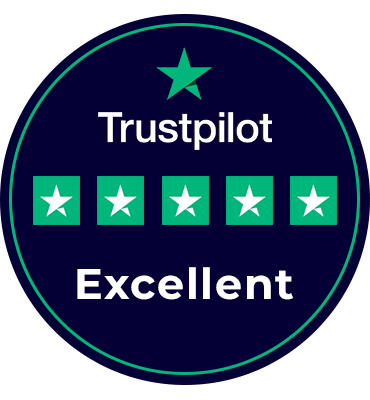Salesforce Development for Small Businesses
Manish Kumawat
Last Updated on: 01 October 2025
150,000+ companies use the powerful Salesforce CRM platform, which has become an essential component of
modern business operations spread across multiple industries, including reputable businesses like American
Express, T-Mobile, and Adidas. Salesforce CRM's data-driven decision-making and ease of customer management have
resulted in an average revenue gain of 25% and a 30% increase in sales productivity. Do you operate a small
business and want to include Salesforce in your enterprise?
The best CRM program available today for companies looking to manage their operations is Salesforce.
The wide range of products and services of Salesforce is available to small enterprises, enabling them to
increase productivity in B2B, B2C, and D2C markets. Small businesses may improve their customer service to match
the finest in the industry and save time and money by utilizing this CRM software.
Salesforce for small businesses is a powerful tool that helps manage customer relationships, automate tasks, and improve overall efficiency. Small businesses often struggle with organizing customer data, tracking leads, and streamlining sales processes. By using Salesforce CRM for small businesses, companies can centralize their operations, making it easier to manage contacts, follow up with prospects, and boost conversions. Many small companies rely on Salesforce CRM small business solutions and Salesforce Application Development to improve collaboration among teams and enhance customer engagement.
Implementing Salesforce integration solutions for small businesses ensures seamless connectivity with various third-party tools, such as email marketing platforms, accounting software, and customer support systems. These integrations allow businesses to automate workflows and reduce manual efforts, resulting in increased productivity. Additionally, Salesforce development for businesses enables customization of CRM solutions to fit specific business needs, ensuring that each company gets a tailored experience. Startups and growing enterprises can benefit from sales force small business solutions that optimize lead management and improve customer service.
For SMEs looking for efficient CRM solutions, Salesforce for SME provides scalable tools that adapt to their growth. Whether a company is just starting or expanding, Salesforce for small companies offers features that enhance business operations. Many entrepreneurs consider the cost of Salesforce for small business before implementing a CRM solution. The Salesforce for small business cost varies depending on the selected plan and features, making it essential to choose a package that fits business requirements. Salesforce CRM implementation plays a crucial role in maximizing the value of these tools. Understanding the Salesforce cost for small business helps companies make informed decisions when investing in CRM technology.
Large enterprises like Adidas Salesforce implementation showcase how effective CRM systems improve operations. Small businesses can leverage similar functionalities tailored to their specific needs through sale force small business solutions. Working with a Salesforce CRM development company ensures businesses get expert guidance in setting up and customizing their CRM for maximum efficiency. Many businesses prefer small business Salesforce solutions that offer automated reporting, AI-driven insights, and easy integration with existing tools.
Choosing Sales force for small business ensures access to industry-leading CRM capabilities that enhance sales and marketing efforts. Salesforce CRM for small business helps in tracking customer interactions, automating follow-ups, and providing detailed analytics on sales performance. By investing in Salesforce CRM development company services, businesses can optimize their processes and enhance customer satisfaction. With Salesforce small business solutions, companies can experience improved operational efficiency and long-term business growth.
Important Features of Salesforce for Small Businesses
Here's a list of important features of Salesforce for small businesses:
Contact Management
Keep track of customer information, including contact details, interactions, and preferences, in a centralized database.
Opportunity Management
Manage sales opportunities, track deals through the sales pipeline, and forecast revenue.
Lead Management
Capture and qualify leads, assign them to sales reps, and track their progress through the sales cycle.
Sales Automation
Automate repetitive sales tasks such as email follow-ups, task assignments, and lead nurturing.
Email Integration
Integrate with email platforms like Outlook or Gmail to sync emails, schedule meetings, and track customer interactions.
Workflow Automation
Create automated workflows to streamline business processes, trigger actions, and send notifications based on predefined criteria.
Mobile App
Access Salesforce on the go with mobile apps, allowing sales reps to manage leads, update records, and track activities from anywhere.
Customer Support
Provide exceptional customer support with tools for case management, knowledge base, and service level agreements (SLAs).
Customizable Dashboards
Tailor dashboards to display key metrics and KPIs relevant to your business, providing real-time insights for decision-making.
Integration with Third-Party Apps
Integrate Salesforce with other business tools such as accounting software, marketing automation, or e-commerce platforms.
Workflow Approval Processes
Streamline approval processes for sales deals, quotes, or discounts, ensuring compliance and efficiency.
Task Management
Assign tasks, set reminders, and track progress on various sales activities and follow-ups.
Campaign Management
Plan, execute, and track marketing campaigns, including email campaigns, events, and social media promotions.
Document Management
Store, organize, and share documents securely within Salesforce, ensuring easy access and collaboration among team members.
A reasonable cost for AI
Salesforce development for healthcare businesses is now quite affordable, with CRM systems offering access to strong AI capabilities.
Logical app design
The logical app design of Salesforce CRM systems includes arranging various system components and functions in a way that makes sense and is easy to use.
Experience of each user
Individual Salesforce CRM users benefit from a seamless and efficient workflow because of Salesforce automation. With the automation of time-consuming procedures, users can now focus on high-value activities.
Models of Salesforce Development for Small Businesses
Here are some models of Salesforce development suitable for small businesses:
| Model | Description | Advantages | Best for |
|---|---|---|---|
| Out-of-the-Box Configuration | This model involves leveraging the standard features and functionalities of Salesforce without significant customization. | -Quick implementation - Low cost - Easy to set up and maintain | Small businesses with basic CRM needs and a limited budget for customization |
| Point-and-Click Customization | Using Salesforce's declarative tools like Workflow Rules, Process Builder, and Page Layouts to customize the system. | - No coding required - Relatively low cost - Scalable and can address specific business requirements | Small businesses with moderately complex requirements that can be met through configuration rather than coding |
| Lightning App Builder | Creating custom applications and pages using Salesforce Lightning App Builder. | - Faster development - Responsive design - Drag-and-drop interface | Small businesses needing custom applications or specific functionality tailored to their workflows |
| Custom Development with Apex and Visualforce | Writing custom code using Apex (backend) and Visualforce (frontend) to extend Salesforce functionality. | - Highly customizable - Tailored solutions - Ability to integrate with external systems | Small businesses with unique or complex requirements not met by out-of-the-box features or point-and-click customization |
| Integration with Third-Party Apps | Integrating Salesforce with third-party applications like accounting software, marketing automation tools, or e-commerce platforms. | - Streamlined processes - Improved data consistency - Enhanced functionality | Small businesses needing to connect Salesforce with existing systems or specialized tools |
| Managed Packages from AppExchange | Installing pre-built applications or components from the Salesforce AppExchange. | - Ready-to-use solutions - Saves development time and costs - Regular updates and support | Small businesses looking for specific functionalities like project management, document signing, or customer support |
| Hybrid Approach | Combining different development models based on specific needs and budget constraints. | - Flexible - Cost-effective - Can leverage both standard features and custom development | Small businesses with varied requirements, allowing them to balance between cost and customization |
These models offer different approaches to Salesforce development, each tailored to suit the specific needs and budget constraints of small businesses.
The Advantages Of Salesforce For Small Businesses
Knowledge of Small Business Problems
Salesforce CRM has a profound comprehension of the obstacles faced by small businesses, providing them with customized solutions that efficiently cater to their specific requirements and concerns.
Establish a productive relationship with clients
The method that clients prefer to interact with the business has changed significantly since the outbreak. Online platforms now account for the majority of interaction. An organization can more effectively connect with its audience at the moment of its choosing when it uses a Salesforce app.
Pay Close Attention to Small Operations
Being inclusive is crucial. Salesforce doesn't ignore small business operations. From complex procedures to larger-scale operations, its features improve every dimension of small businesses.
Boost conversion rates
Numerous businesses have discovered that using a Salesforce application increases users' ability to interact with the company, which makes it a reliable resource for higher conversion rates. When it comes to connecting with a brand, customers are more inclined to use an application again if they find it straightforward to use.
Carefully Designed CRM for Small Businesses
Salesforce's CRM is specifically made for small organizations; it has an easy-to-use interface and adaptable features that encourage productive customer relationship management.
Assistance for Beginner Developers through AppExchange
Salesforce's AppExchange empowers beginner developers and promotes innovation and expansion inside the Salesforce ecosystem by offering a platform for the creation and sharing of apps.
Substantial investment fund
Small businesses can increase their potential for success by gaining access to opportunities and financial resources through a key Salesforce investment fund.
Strengthen brand development
An increasing number of clients are becoming reliant on business apps due to their high use rate. Because of this, a reliable Salesforce app developer will typically focus more on creating business apps that have the potential to enhance the company's branding.
Customize your marketing strategy
You may interact with clients and track and manage their data on one platform by using a Salesforce app for your company. You would have access to data with the Salesforce application development that you could use to improve your marketing tactics.
Increase user interaction
Having a Salesforce application can let you realize that reaching out to your target audience is not an expensive endeavor, despite what you may believe. You no longer need to continuously invest in various forms of advertising in order to reach your target audience. With the aid of Salesforce software, you may complete anything effectively.
Ensure constant data accessibility
You can make it simple for clients to access your goods and services and even get in touch with your customer care team whenever they need to by using Salesforce applications.
Salesforce development cost for Small Businesses
To understand Salesforce development costs for Small Businesses, you must know the factors affecting Salesforce Development costs first. Some tips for saving your money in the development of Salesforce are also mentioned below:
| Factors Affecting Salesforce Development Costs | Budgeting Tips for Small Businesses: |
|---|---|
|
|
|
Salesforce Development Challenges and Solutions for Small Businesses
- Limited Budget:
- Challenge: Small businesses often have tight budgets, making it difficult to invest in extensive Salesforce development.
- Solution: Opt for cost-effective solutions such as out-of-the-box configurations and utilizing standard Salesforce features instead of custom development.
- Resource Constraints:
- Challenge: Small businesses may lack dedicated IT teams or Salesforce experts.
- Solution: Consider outsourcing Salesforce development to experienced consultants or development firms.
- Complexity of Salesforce:
- Challenge: Salesforce is a robust platform with a steep learning curve, especially for users without technical backgrounds.
- Solution: Invest in comprehensive training for users and administrators to ensure they understand Salesforce capabilities.
- Customization Complexity:
- Challenge: Implementing complex workflows, custom objects, or integrations can be challenging for small businesses.
- Solution: Start with simple customizations and gradually increase complexity as users become more familiar with the platform.
- Data Migration Issues:
- Challenge: Migrating data from existing systems to Salesforce can be complex and prone to errors.
- Solution: Conduct a thorough data audit to identify and clean up inconsistencies before migration.
- Scalability Concerns:
- Challenge: Small businesses need a Salesforce setup that can scale with their growth.
- Solution: Design Salesforce architecture with scalability in mind, considering future business needs.
- User Adoption:
- Challenge: Getting employees to adopt Salesforce and use it effectively can be challenging.
- Solution: Provide comprehensive training sessions tailored to different user roles.
- Integration Challenges:
- Challenge: Integrating Salesforce with existing systems or third-party applications can be complex.
- Solution: Use pre-built integrations or middleware solutions to streamline integration processes.
- Security Concerns:
- Challenge: Protecting sensitive data is crucial, but small businesses may lack expertise in implementing robust security measures.
- Solution: Implement security best practices recommended by Salesforce, such as user permissions, data encryption, and IP restrictions.
- Time Constraints:
- Challenge: Implementing Salesforce can be time-consuming, impacting daily operations.
- Solution: Develop a realistic project timeline with clear milestones and deadlines.
Collaborate with a Top-Notch Salesforce Development Team for Your Small Business
Collaborate with Fulminous Software's top-class Salesforce development team for your small business today! Our experienced developers are ready to assist you, hire Salesforce developers now! Contact us now!
HIRE A TOP SOFTWARE DEVELOPMENT COMPANY

 Verified
Expert in Software & Web App Engineering
Verified
Expert in Software & Web App Engineering
I am Manish Kumawat, co-founder of Fulminous Software, a top leading customized software design and development company with a global presence in the USA, Australia, UK, and Europe. Over the last 10+ years, I am designing and developing web applications, e-commerce online stores, and software solutions custom tailored according to business industries needs. Being an experienced entrepreneur and research professional my main vision is to enlighten business owners, and worldwide audiences to provide in-depth IT sector knowledge with latest IT trends to grow businesses online.
Partner with Top-Notch Web Application Development Company!
Discuss your Custom Application Requirements on info@fulminoussoftware.com or call us on +1-903 488 7170.
15 Days Risk-Free TrialRecommended Articles


